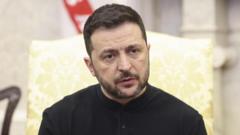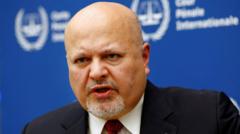The discovery of mass sperm donation practices in the Netherlands has sparked alarm as a new registry indicates that some donors may have fathered upwards of 125 children, highlighting a potential increase in genetic anomalies among half-siblings.
Netherland’s Sperm Donation Crisis: New Registry Uncovers Extensive Donor Misuse

Netherland’s Sperm Donation Crisis: New Registry Uncovers Extensive Donor Misuse
A recent report reveals that some sperm donors in the Netherlands have fathered over 25 children each, raising concerns about genetic risks.
In an alarming revelation, new data from a national sperm donor registry in the Netherlands has surfaced, indicating that certain sperm donors have fathered an astonishing number of children, with one individual allegedly siring up to 125 offspring. The findings emerged amid increasing scrutiny of the sperm donation industry, following two significant scandals where some donors deliberately fathered hundreds of children.
Recent assessments unearthed information showing that at least 85 donors have resulted in more than 25 recorded children each. The implications of this are significant, given concerns regarding the heightened risk of consanguinity and genetic anomalies as these children grow up, seek partners, and eventually start families of their own.
Vincent Karremans, the minister responsible for youth, prevention, and sport, expressed his regret in a letter to the Dutch Parliament, acknowledging the oversight and inadequate record-keeping by fertility clinics which permitted mass donation incidents. "I deeply regret that these excesses have been discovered," he stated, extending his support to the affected families whose children may unknowingly have numerous half-siblings.
To address these pressing issues, a new law was enacted on April 1, setting stringent regulations for monitoring sperm donations, ensuring better tracking of donor contributions in the future. As the government grapples with this troubling situation, experts and advocates call for further reforms to safeguard the health and rights of future generations born from donor sperm.


















